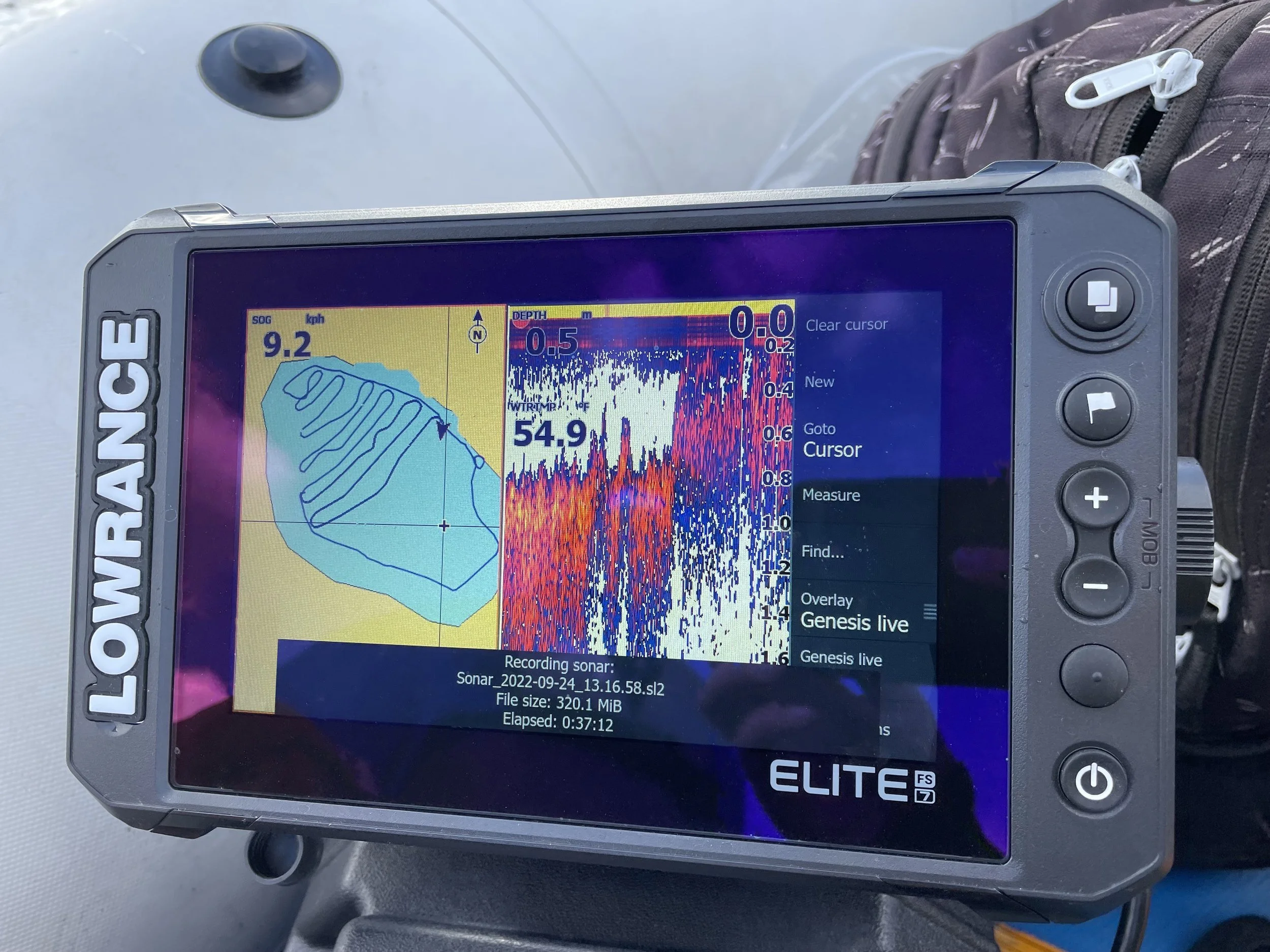
Snorkel Surveys: A Look Below the Surface
Sometimes the best way to assess a fish population is to become a fish…. or at least pretend to be one. Snorkel surveys are a sampling method sometimes utilized by fisheries biologists to enable them to peer into the underwater hidey holes which aquatic organisms call home. These surveys allow biologists to quantify the distribution, abundance, and composition of fish in an area, assess how they might be utilizing habitat, and understand more about their behavior. While other fisheries sampling methods such as electrofishing or trapping can be used, snorkel surveys require no fish handling and very little added stress to fish, making them a relatively low-impact alternative to more invasive sampling methods. While the other sampling methods such as electrofishing certainly play a role in the biologist’s toolbox, often snorkel surveys can be used to answer questions that may not be feasible to answer using other methods. Additionally, snorkel surveys have the added benefit of being very cost effective to perform over a large area of habitat.

Bathymetry: The Shape of Sound
Have you ever wondered what the bottom of the ocean looks like? Or how deep your favourite lake is? Using the science of bathymetry, we can investigate these mysterious biomes without ever leaving the surface! Bathymetry is the measurement of water depth in river, lake, and ocean ecosystems. It is a fundamental component of hydrography which studies the physical characteristics of a water body.

BONEFISH! TWELVE O’CLOCK!
AJM’s Fisheries Biologist, Hillary Keyes, recounts her recent adventures in Belize! The past few years in the month of March, you would have found me on a frozen Alberta lake with a tiny rod, jigging for any of our resident trout species or yellow perch, sometimes with a tip-up baited for northern pike nearby.

A Glimpse Into Marine Turtle Conservation: Shelling Out Some Love (and Facts!) for the Majestic Marine Turtle
It is winter here in Alberta, Canada and we are dreaming of warmer temperatures.
To turn the thermostat up a few notches, AJM’s Biologist, John Rich, transports us to the remote beaches of the Turkish Republic of Northern Cyprus in this latest post about his past work with endangered Marine Turtles!

Bull Trout Conservation - 'Tis the Season for Some Fish Squeeze'n!
For fisheries biologists, the month of September is an exciting one, as it marks the spawning season for many of Alberta’s Bull Trout populations. Bull Trout is Alberta's provincial fish and it is becoming a rare breed. Populations are considered "threatened" or of "special concern". Read AJM's latest blog to learn more about the species and how AJM is part of the BLTR conservation movement.

Why Didn’t the Fish Cross Under the Road?
Did you know that there are hundreds of thousands of watercourse crossings in Alberta? And did you know that many of them have the potential to negatively influence the ability of Alberta’s fish species to migrate between important habitats?

A Benthic Bug's Life
All life depends on water. Monitoring the health of water bodies, such as streams and lakes, is extremely important to ensure we manage this vital resource effectively. We can assess aquatic communities with a suite of biological, chemical, and physical measurements to form a picture of overall aquatic health.

Drip, Drip... Who's There?
Invisible Genetic Codes in Streams and Lakes Reveal What Species are Present!

Your Eye in the Sky
Technology has changed the face of resource management and one tool in particular has gained popularity as a resource for visualizing diverse landscapes. Drones, also known as unmanned aerial vehicles (UAVs), are an incredible tool to capture both large and fine scale aerial imagery of anything from tracts of wilderness to large infrastructure projects.

Are You Unsure When to Submit to DFO Under the Fisheries Act?
Do you have a proposed development that is near an aquatic environment? Unsure whether you need to submit an application to DFO or not? AJM created this easy to follow Fisheries Act Decision Flow Chart to help guide you to make an informed decision.

Navigating the Revised Fisheries Act (2019)
The Government of Canada’s Bill C-68, an Act to amend the Fisheries Act received Royal Assent in July 2019. On August 28, 2019, the Fish and Fish Habitat Protection Program and its associated provisions came into force. The Fisheries Act is one of Canada’s oldest and most important environmental laws and was first enacted in 1868, one year after the Nation’s confederation!
